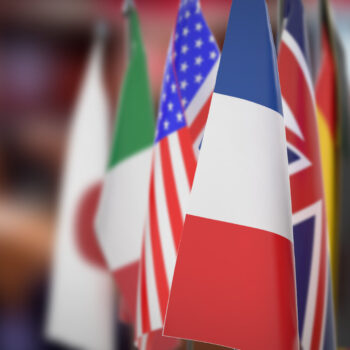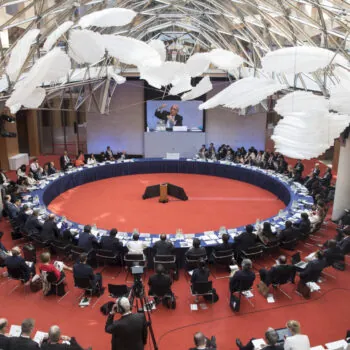In June, deep in the heart of Bavaria, the G7 Leaders will meet amongst the mountains and lakes to share plans for shaping a pivotal year.
The stakes couldn’t be higher. Both the climate and development agendas combine this year. But this comes amidst the dramatic drop in the oil price, the rise of ISIS, intense diplomatic relations with Iran and the Ukraine crisis. Those of us (un)fortunate enough to have placed many a hope on these types of summits before, know all too well that the best laid plans can often go to waste when an international emergency strikes.
But when the waters are calm, G7’s can make a difference. These countries are the global norm setters having forged much of the international financial and political architecture. It is both what they agree in the communiqué AND what they discuss that matters.
Wins to be had
A solid G7 outcome should expand the political space ahead of the Paris summit in December. It will need to announce strategic confidence building measures to maintain momentum. There are 3 most obvious candidates. First, an articulation of how these countries will demonstrate their commitment to meet the $100bn obligation, second, how they will listen to the needs of the most vulnerable countries and take climate impacts more seriously and third, what additional pledges they can provide jointly to signal the irreversibility of their decarbonisation pathways.
Taking stock
But June is also a prime opportunity to take stock of the offers (aka the Intended Nationally Determined Contributions – INDCs) which are expected to emerge over the next few months. It is a time to understand what more Paris can deliver to cement a credible, durable and dynamic climate agreement. No doubt G7 leaders will discuss the contours of a deal, likely focusing on the rules and accountability measures they plan to adhere to as well as how best to encourage countries like China, India and Brazil to comply too. These rules are vital to cementing trust between countries, knowing what the ‘other’ is up to is a key feature of any international agreement, and climate should be no different.
The best kind of finance
As the last stop before the financing for development (FfD) meeting in July, these major donors will also consider how they contribute towards the future of the global development agenda. Whilst their aggregate development assistance is not to be sneezed at, it pales in comparison to their developing country public and private investments in agriculture and infrastructure. Since money is tight amongst the G7, their public funds need to be used ever more wisely. Finance has typically and legitimately railed those in developing countries who feel it is often used as a tactical ploy in the final hours of many climate agreements. This approach only serves to exacerbate underlying tensions, so for Paris something needs to change. We know public money is scarce, but our G7 leaders will need to show some (non-monetary) goodwill to change the mood. The G7 is a perfect moment for these donors to start paving the way for a more durable and aligned financial ecosystem on climate. Alignment is ‘le mot du jour’. Not only should donors ensure access to support is harmonised, but this is the first step towards securing alignment of broader public funds from across the world towards meeting the 2°C obligation. This is a tall order, but the FfD and G7 combined provide a promising start to shifting investments towards delivering sustainable development.
Goodies and baddies
But the G7’s aren’t just moments for substance, but also for politics. Since Copenhagen, Germany has shied away from the international stage on climate change. But Paris needs Berlin, and Merkel is quietly edging ever closer towards centre stage, and we need to keep her there. The G7 is a moment to reaffirm the role of Germany in the climate talks, and give Europe its mojo back. But of course a G7 wouldn’t be a G7 without a baddie. And this time its Japan’s turn. Abe may be turning heads amongst the economic and foreign policy elite, but his actions on climate change are pitiful. Fukushima pushed Japan’s already weak energy policy into disarray. Abe has rolled back on Japan’s previous commitments, withdrawn from the second commitment period of the Kyoto Protocol, tied its climate finance to export its own coal technology and since the US has come out from the shadows it is now more diplomatically exposed than ever. As a natural high-tech low carbon leader, Japan should have nothing to fear, but the warped mix of incumbent industry and paranoid foreign policy are pushing it into irrelevance. The G7 is a prime moment to show Japan up in front of its peers.
The G7 will not solve the climate crisis on its own. But it can be a useful setting for our Leaders to begin the conversation on the contours of a deal in Paris, collectively understanding what they need out of Paris from others, and what they can offer in return. There is a lot more work to be done before agreement is reached in Paris, and the G7 should set the scene for success.


